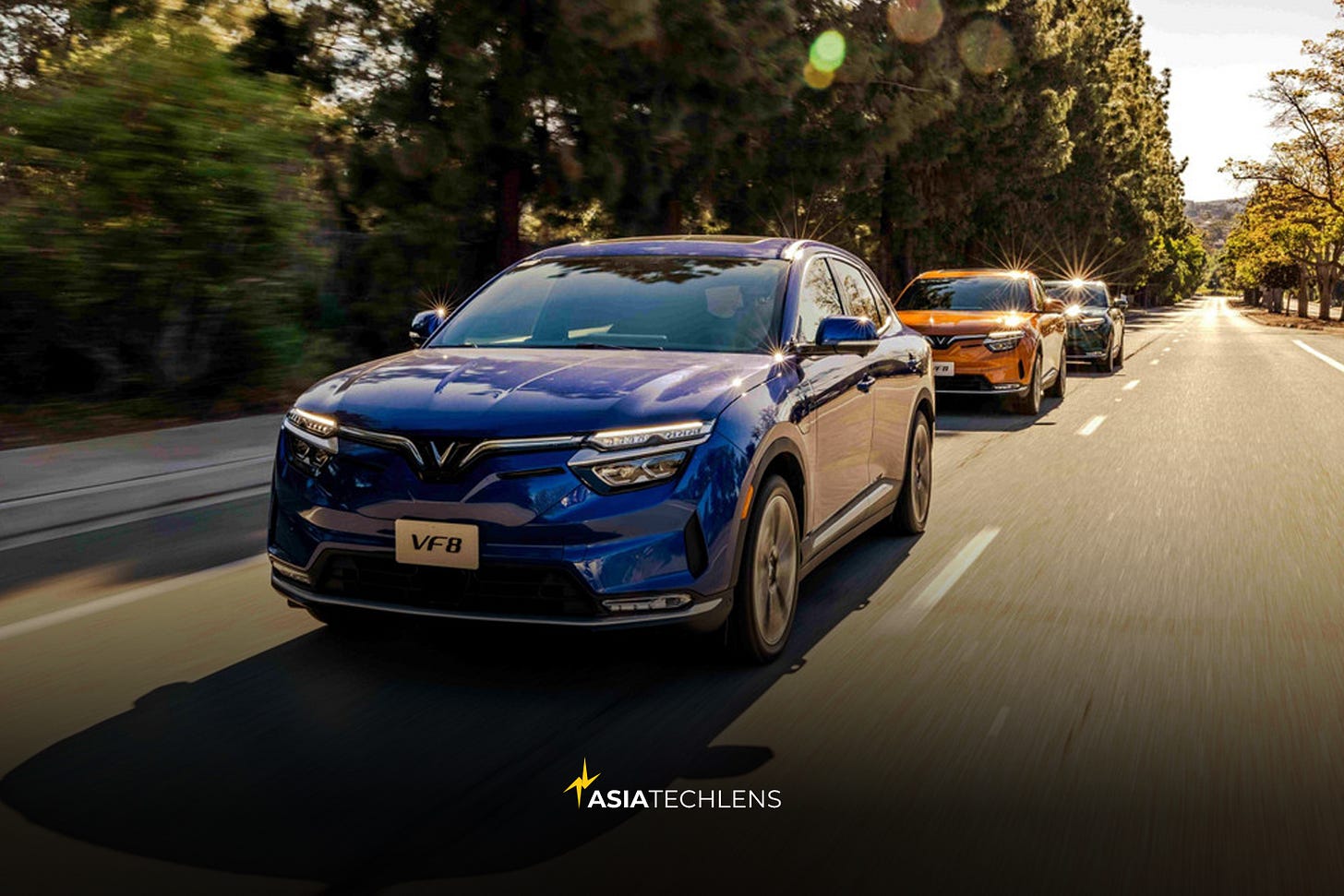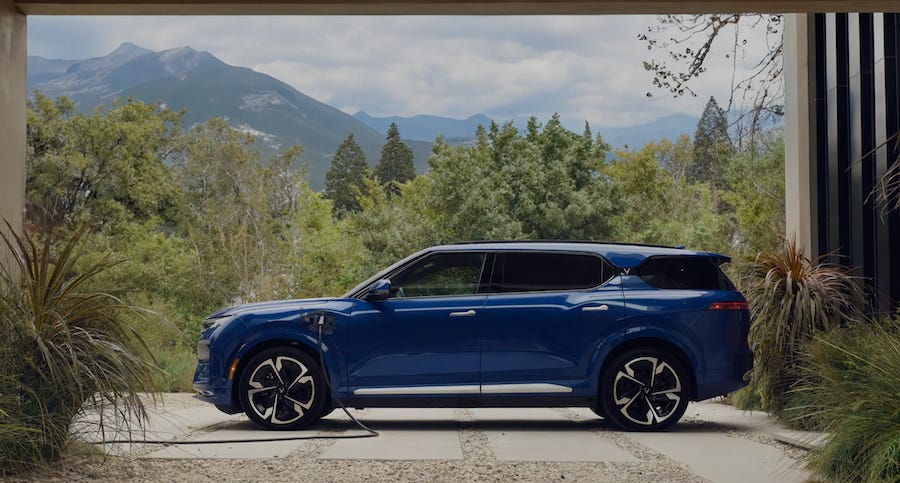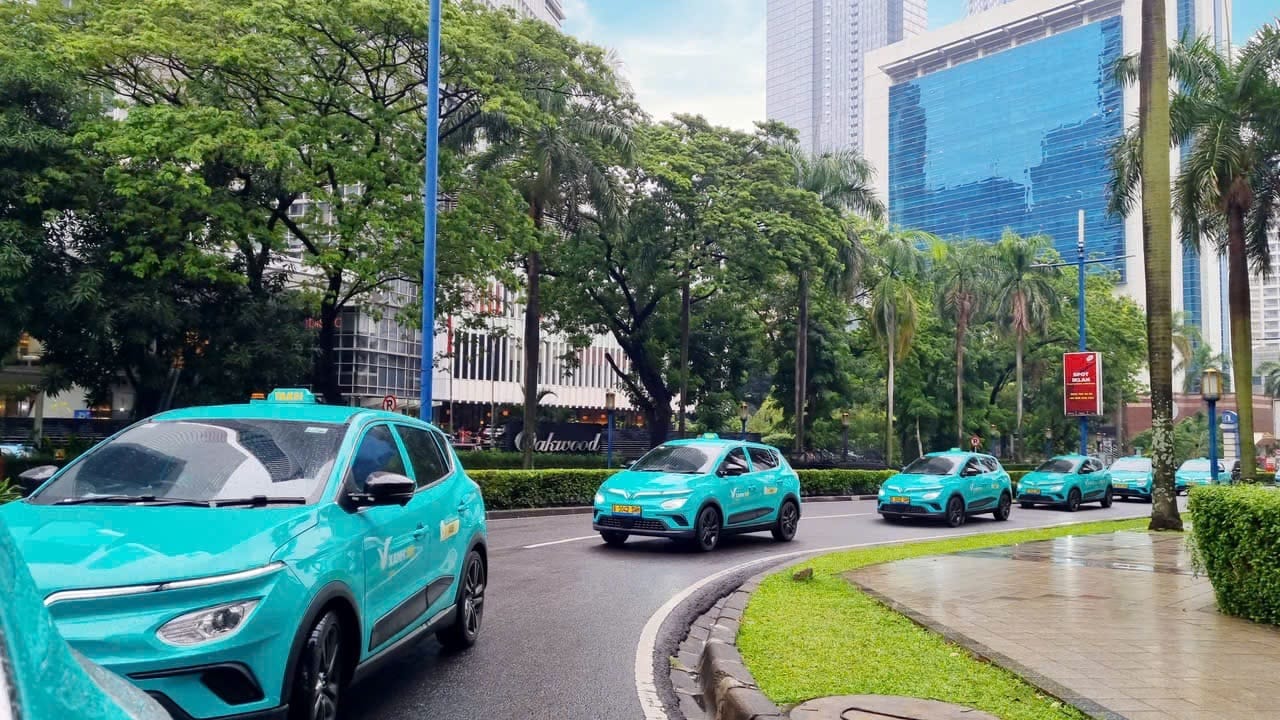VinFast Pivots to Southeast Asia - But Can it Outrun BYD in Indonesia?
After global setbacks, VinFast looks closer to home

Vietnam's VinFast is pivoting hard to Southeast Asia after struggling in the US and Europe. The electric vehicle (EV) maker has broken ground on an assembly plant in Subang, West Java, committing more than 1.9 trillion rupiah (about $115.4 million) to a facility slated to open in late 2025 with capacity for 50,000 vehicles a year.
The move comes after opening a $500 million assembly plant in India in August, with plans to expand to $2 billion and 150,000 units annually. Alongside operations in Thailand and the Philippines, and Malaysia reportedly next, VinFast is re-anchoring global ambitions closer to home.
The logic: localize production to cut prices, ride policy tailwinds, and scale where EV demand is rising fastest. The challenge: Chinese rivals already dominate, while questions over quality and after-sales linger. The next 12 months will show whether groundbreaking ceremonies turn into real market share.
From Nasdaq Hype to Hard Reality
VinFast once grabbed global headlines. In August 2023, it went public via a SPAC on Nasdaq, briefly hitting an $85 billion valuation - more than Ford or GM. By September 2025, shares were down nearly 80%.
Despite the slump, the company continued to raise capital. In October 2024, it reportedly secured a $1 billion investment led by Abu Dhabi’s Emirates Driving Company, followed by another $3.35 billion from parent Vingroup. That cash is funding production and global expansion.
However, the West remains a hard slog.
US: It delayed its North Carolina factory from 2025 to 2028.
Canada: It is trimming corporate stores - closing five of ten in mid-2025.
Europe: It is leaning into a dealer-led sales model, using third parties for after-sales service, and rolling out electric buses for public transport.
With factory plans delayed and corporate stores pared back, a pivot toward nearby Asian markets makes sense. VinFast initially hoped the US would anchor its overseas sales, but slow progress - even before rising tariff uncertainty - forced a rethink.
“In the near future, apart from the Vietnamese market, we will focus more on Indonesia, India, and the Philippines,” Vingroup founder Pham Nhat Vuong told shareholders last month, according to Reuters.

Indonesia: The Best Bet
VinFast is pushing hard into Southeast Asia, with Indonesia front and center. Out of 160 million registered vehicles, fewer than 100,000 are EVs, according to the automotive association Gaikindo.
EVs remain a niche, so changing buying habits will take time. Consumer purchasing power is limited, and Chinese incumbent BYD, Wuling, and Chery already lead; brands like Hyundai and Citroen are also vying for attention.
VinFast is betting on infrastructure and fleets to break through.
Charging: V-Green, a company owned by Vingroup founder Pham Nhat Vuong, plans to deploy about 63,000 charging ports by the end of 2025. This follows a $1.2 billion partnership with Egypt's Prime Group to deploy 100,000 stations across three years.
Fleets: Vingroup’s ride-hailing arm, Green and Smart Mobility, launched the Xanh SM taxi brand in Jakarta with 1,000 VinFast EVs, turning everyday trips into rolling test drives that build familiarity and trust.

There are early signs of momentum. Gaikindo reports BEV sales up 211% year-on-year in Jan-Apr 2025, with 23,900 units sold. This means, demand is slowly picking up for EVs.
Can VinFast Carve a Foothold?
Indonesia may be VinFast’s best shot at meaningful growth, but tough competition and low brand recognition mean unlocking it will take time and capital.
Maybank Investment (Dec 2024) notes that VinFast could differentiate with generous warranties, battery subscription that lowers upfront costs by 20%, and an ecosystem push via Xanh SM taxis and V-Green charging.
If VinFast delivers reliable cars, dense charging, and visible service at scale, it can carve a foothold in the crowded and value-driven market. If execution falters, Indonesia may prove less a launchpad, and more another costly detour, in its global expansion.
For More Info on Asia Tech Lens

